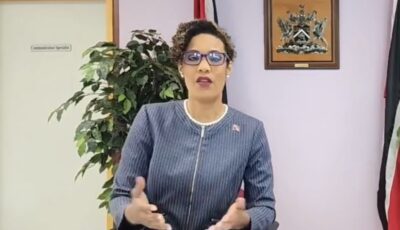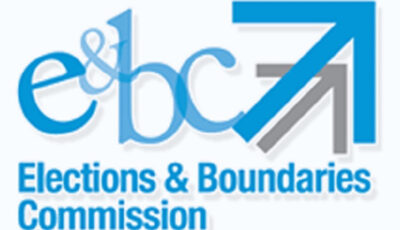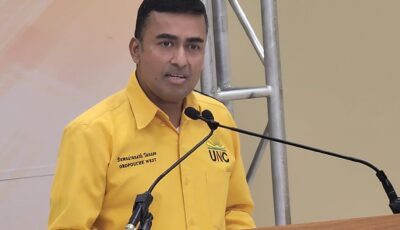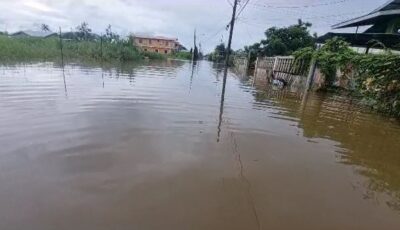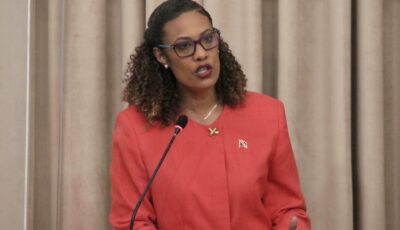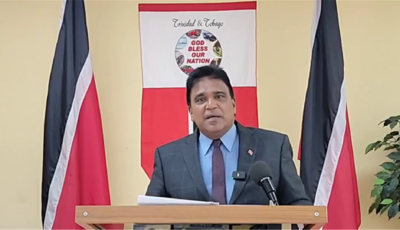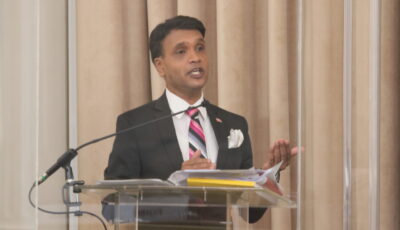G.A.T.E: From Participation to Oppression
The Government Assistance for Tuition Expenses (GATE) Programme was introduced in 2004 as a replacement to the UNC’s Dollar-for-Dollar Education Plan which started in 2001. Up until 2015 successive Governments recognised the value of education, be it at the pre-primary, primary, secondary, tertiary or technical-vocational levels, towards building a resourceful and resilient society.
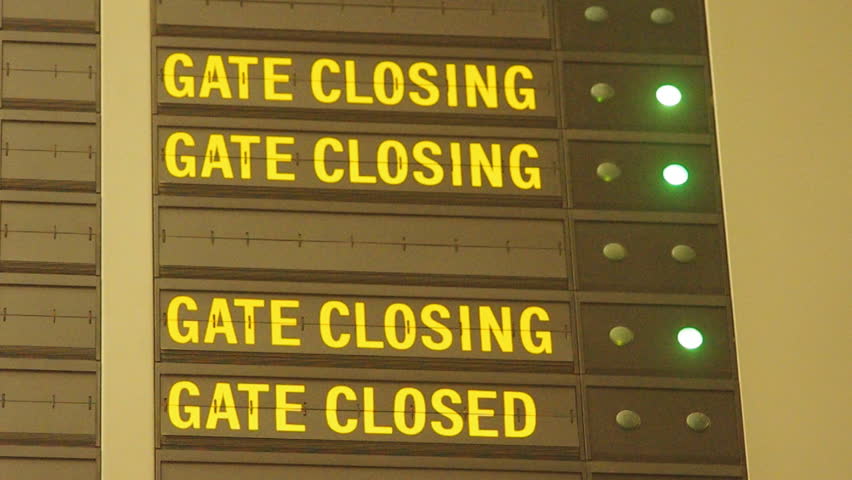 In just two years the Rowley-led PNM has eroded decades of progress in the education system. The share incompetence, arrogance and negligence of the PNM has pushed us closer to a failed state. The patent blunders of the PNM in economic policy-making, tackling crime, failing to supply medicine at our hospitals, eroding the confidence of international investors, and gross mismanagement of the GATE Programme, are brazen examples of a Government with no vision or plan.
In just two years the Rowley-led PNM has eroded decades of progress in the education system. The share incompetence, arrogance and negligence of the PNM has pushed us closer to a failed state. The patent blunders of the PNM in economic policy-making, tackling crime, failing to supply medicine at our hospitals, eroding the confidence of international investors, and gross mismanagement of the GATE Programme, are brazen examples of a Government with no vision or plan.
Prior to Dollar-for-Dollar and GATE, many middle income and working-class families could not access tertiary education. Students were unable to access tertiary education because of a range of complex factors. Some of these included living in rural communities, suffering from chronic medical conditions or disabilities, and belonging to single-parent families. The major barrier to access, however, remains the prohibitive direct and indirect costs of tertiary education.
GATE subsidises 100% of tuition expenses at the undergraduate level and up to 50% for selected postgraduate programmes. GATE was established in September 2004 when WTI crude oil prices fluctuated between US$40 and US$50 per barrel. By September 2014, WTI crude oil prices doubled to an average spot price of US$95.85 per barrel. The state invested over TT$5 billion in the GATE programme between September 2004 and September 2014 providing access to thousands of citizens.
In the run up to the General Election in August 2015, Keith Rowley declared at a public meeting in Embacadere that GATE was “a PNM Programme. Why would the PNM want to interfere or shut down a programme like that, that the PNM created?” In July 2016, Rowley reassured students at The UWI Mona Campus that “you in the medical field ought not to worry…” A year later and with water more than flour, Rowley and his misfits have deceived the nation. GATE was cut by $50 million in 2017 and will be cut by $150 million in 2018; a betrayal of the 2015 PNM Manifesto promise to the electorate.
GATE originated out of a CARICOM-led mandate to widen participation in tertiary education and was also inspired by the 2000 Dakar commitment to ‘Education for All’. Based on the evidence, the Rowley-led PNM no longer views GATE as a mechanism to support young people’s self-advancement which would lead to a knowledge-based economy. Instead, the Rowley-led PNM considers GATE to be a liability on its balance sheet. The cuts to GATE signify a reversal in the state’s philosophy on education.
A comparison of the actions of the People’s Partnership Government versus the PNM Government presents an undisputable case of one administration investing in people and the other distressing people.
The People’s Partnership Government kept its Manifesto promise to secure and expand GATE like never before. The education landscape experienced unprecedented reform. GATE was expanded to $650 million from $575 million annually. GATE became more inclusive to include Technical Vocational Education and Training (TVET). GATE was made more accountable through the enforcement of student GPAs. GATE auditing and monitoring were strengthened for public and private institutions. The GATE e-service was introduced to automate student application processing. GATE was aligned to sectors of national development priority. All of these changes supported a robust and relevant tertiary system leading to an increase in participation from 42% in 2010 to over 65% by 2015, while at the same time, reducing wastage and abuse by increasing the efficiency of the programme.
Rowley, on the other hand, cut GATE for students over the age of 50 years which defies the notion of lifelong learning. PNM cut GATE to medical students at St. George’s University in Grenada, despite Rowley’s assurances to medical students that they ought not to worry. PNM cut GATE from institutions and programmes not accredited by the ACTT although some public institutions are not accredited but access GATE funding. PNM capped GATE funding for all non-medical programmes despite space limitations for some programmes nationally. PNM restricted access to postgraduate studies in the absence of clear criteria or a publicly available listing of the country’s developmental needs.
If that was not bad enough, the PNM will now introduce a means test in the coming weeks which translates into students paying at least 25% of their tuition costs if the household earns more than $10,000 per month. A household with a mother employed as an OJT earning $6,250 per month, at the undergraduate level, and a father working as a taxi driver earning $4,000 per month will now be forced to find money to pay for two or three children with an interest and ability to pursue tertiary education.
An even more distressing phenomenon is the fact that the PNM has failed to publish the criteria to be used in determining household incomes. An entire year has expired and the PNM has not provided students, faculty or institutions with adequate information or lead-time for implementing a policy decision with such far-reaching consequences.
Will household income data be validated by the Board of Inland Revenue? Will students with chronic medical conditions and disabilities, who pay for medication and therapy which are not available at our public hospitals, be subjected to the same fee structure for GATE funding? Given the expected fallout of students not being eligible for GATE, what administrative systems have been implemented to ensure faster processing of loans for the Higher Education Loan Programme (HELP)? What will happen to the students who will be added to the drop-out rate due to their financial inability to continue with their studies in September? Will this worsen an already deteriorating crime situation? What will happen to tertiary institutions which are already experiencing severe drops in enrolment because of the PNM’s GATE policy? Will tertiary institutions be closed down and add to the increasing number of job losses?
The PNM’s policy on GATE is oppressive and poorly implemented. The high-handed nature of the PNM’s decisions and actions must not be tolerated. Students, faculty and institutions are treated with scant courtesy. The entire process lacks transparency and accountability. Decisions are simply taken and the education system is tossed into a tailspin.
Imagine achieving a 65% participation rate in tertiary education under the People’s Partnership Government versus enduring 100% oppression under this PNM Government!


